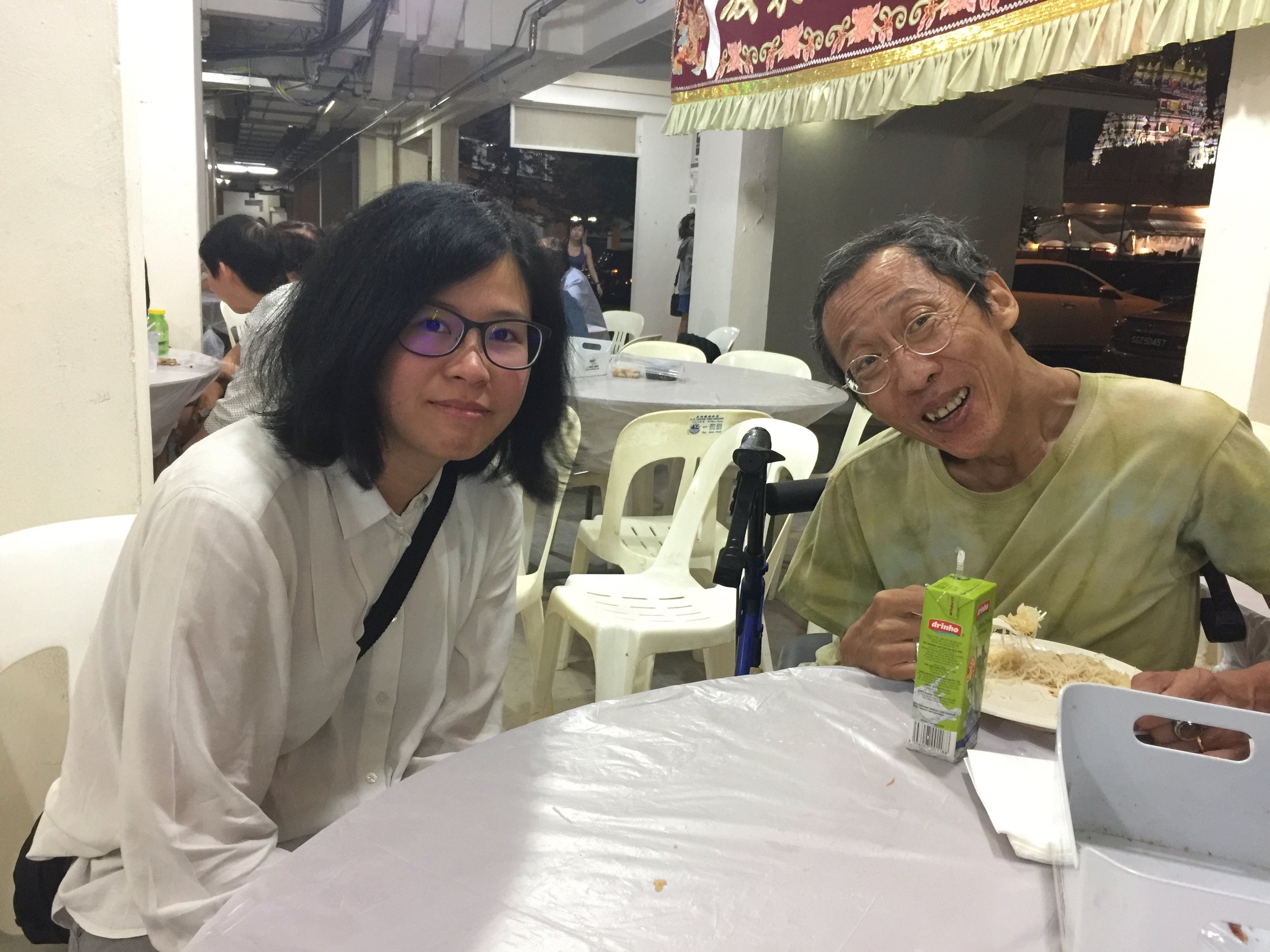Searching for Lee Wen
An Interview with Chan Li Shan
Photo above: Lee Wen in a performance in Singapore. The statement "Is Art Necessary?" is likely to be a reference to the 1993 Art vs. Art conference held at the Substation. Janadas Devan had given a presentation with that title. Says Chan Li Shan, “This picture was sent to me by Satoko, Lee Wen’s wife, when we were working on Yellow Man, a picture book.”
How did you feel about Searching for Lee Wen when it was finally out and you were able to hold it in your hands? You've published books before, but did this one feel different?
This book project has taken me on a wonderful ride. Really wanted to paint a portrait of the late Singaporean performance artist Lee Wen. In person, he was very charismatic and gifted with his words. I was spurred on to complete it when I learned of Lee Wen’s death in March 2019. At the time, I was in Chittagong, working at the Asian University for Women. I was overcome with a sense of duty to finish the project to get closure of some kind.
I started the project in earnest in 2016 as a piece I submitted in a creative writing course for peer review. I sent the finished manuscript to my publisher in late 2020. Almost immediately, I felt a sense of continued unfinished business. This is because there is a lot in one person’s life, and a book only captures a small amount of what there is: their experiences, thoughts, inner world, and life’s work. Another book could be written that examines further some of the themes I mention in this book.
You not only got to know Lee Wen, but he also got to know you. You describe one or two incidents in which he was unhappy with you. Did you feel exposed, vulnerable at those times? What happened as a result, e.g., did you try to shield yourself afterward?
The only photo I have of the two of us. It was taken at his mother's wake in 2017. I had flown from Norwich to Singapore to attend her funeral.
Yes, there were times Lee Wen was unhappy with me, which I describe in the book. I think it is incumbent on a writer to allow themselves to be exposed and/or vulnerable, to reveal their weaknesses if possible to their readers. As it is conventionally expected that writers will portray themselves in the best possible light, this is also a way to surprise readers and overturn expectations.
You say his family was welcoming, cooperative, and helpful. How have they responded to the book now that it's out?
A photo of me interviewing Satoko while drinking iced milk tea at the family home in Kodaira, Japan. Their son later came downstairs to speak with us. The young woman in the middle was studying art in college and served as our interpreter.
Due to covid, the postal services are slower, and it has taken awhile to get the book to his family in Japan. We then needed to send a digital copy from my publisher so that translation software could be used to read the book. I am looking forward to their response. As they are artists, I think they will understand that the work is not hagiography even as it is, in a way, a tribute to Lee Wen.
Tell me about the cover, which is almost as extraordinary as the content; even the spine is worth studying. Did you work with the artist and designer? What was it like working with the Epigram staff, especially your editor?
The cover design and illustration by Priscilla and Yohei is powerful and simply beautiful. I am delighted that so many people have been touched by the striking cover. Kudos to the designers for their extraordinary work. I am grateful to my editor Jay for her patience and care, and most of all, to my publisher Edmund Wee for believing that the story of Lee Wen deserves to be more widely shared.
Now that you've finished your book, how do you feel about life writing? Have your feelings and/or thoughts about it changed?
I want to know more and to continue to learn! Finishing the book left me realizing how little I know. I am currently a PhD student at the University of Hawai’i at Manoa, where I hope to grow in my understanding of life writing. I came here because of the excellent reputation of the Center for Biographical Research. My goal is to stretch myself, to familiarize myself with debates and discussions in life-writing scholarship, and also to exchange ideas with like-minded practitioners. All this will inspire me to write my next book.
Chan Li Shan is a Singaporean writer and PhD student at the University of Hawaiʻi at Manoa, where amongst other things, she was awarded the Grace K. J. Abernethy Fellowship in 2022 and the Biography Prize by the Center for Biographical Research in 2021. In 2014, she was recognized as Most Promising Advocate at the Singapore Advocacy Awards for her work in mental health awareness. Her educational background includes an MA in Creative Writing with Distinction from the University of East Anglia, an MSc in History and Philosophy of Science from the London School of Economics and Political Science, and a BA (Hons) in Philosophy and Politics from the University of York.




